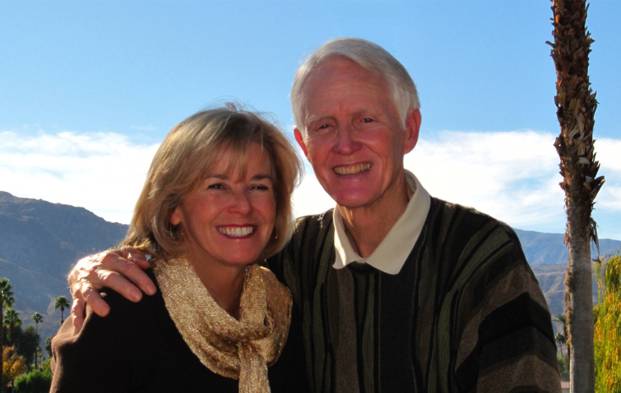
Methods for Reducing Anxiety and Stress
Tom G. Stevens PhDPsychologist/Professor Emeritus, California State University, Long Beach
Send Feedback/Questions to: Tom.Stevens@csulb.edu
You Can Choose To Be Happy:
Site dedicated to enhancing human happiness, self-development, and success
Go to: Choose To Be Happy Checklist
SITE MAP: All free Self-help resources includes online book, You Can Choose To Be Happy, and SHAQ

|
|||
| search engine by freefind |
Coping with Anxiety, Stress, and Uncertainty
Index
Help with ANXIETY and STRESS on this website
Anxiety is one of the most basic emotions. One cause is being
uncertain about whether or not important goals, needs, or values will be
satisfied. Many of the self-help materials in this website concern
changing beliefs and skills that can reduce anxiety. There are general
methods for dealing with anxiety, such as the CHUG-OF mental control strategies
and methods that can help with anxiety in specific situation such as dealing
with an interpersonal conflict. In this case, if the anxiety is caused by
lack of knowledge about how to deal with the situation, learning
conflict-resolution skills can help. Different words to describe the basic
anxiety emotion include stress, nervous, apprehensive, fearful, and worried.
Too much anxiety also usually underlies problems of shyness, introversion, fear
of rejection, and lack of assertiveness.
ADVICE
Try to determine the following yourself:
-
List the values, goals, and/or expectations that you are afraid won't be met? Also, what level or degree is your expectation (how high is it)?
-
How realistic are your expectations and goals? Will changing your expectations or goals help reduce the anxiety? For help with changing goals and expectations, click here.
-
Are there several life areas affected--career, family, significant other, income, health, recreation, etc.? If so, your anxiety will be higher.
-
List external and internal resources you have for dealing with the problem(s).
-
Is uncertainty about how to deal with this situation (what to think or do) a factor in your anxiety? If so, first make a list of steps that can help you solve at least part of the problem. Then get help advice from someone who has solved similar problems successfully, a website, a book, or an expert.
-
If this is an ongoing problem, do you need to build some skill to increase your ability and confidence for dealing with the problem? If so develop a plan to build the skill. Perhaps it is a specific situation that you can get direct advice to help with. For example our web links have many useful tips for dealing with interpersonal problems that can make an immediate difference.
-
Are low self-esteem, negative thinking, prolonged fears. a history of anxiety in this area, or some other more personal issue behind much of the anxiety? If so, try to examine these and get counseling (see below).
HELP WITH ANXIETY and STRESS ON THIS WEBSITE
To get a comprehensive list of all references to anxiety in this website, you could use the SEARCH feature and search for the word anxiety. However, that would lead to a large number of references. Instead, I have some suggestions of where to start.
For a general understanding of the MOST BASIC CAUSES OF ANXIETY, try the following:
You Can Choose To Be Happy: "Rise Above" Anxiety, Anger, and Depression, Chapter 7
For some GENERAL anxiety-reduction methods, try the following:
For methods to help with a SPECIFIC SITUATION where anxiety may be a problem, go to the topic that you are concerned about. Start with the references below:
From External to Internal ControlYou Can Choose To Be Happy: "Rise
Above" Anxiety, Anger, and Depression,
Chapter 6 (How to deal with anxiety
related to trying to please others, codependency, or non-assertiveness)
You Can Choose To Be Happy: "Rise
Above" Anxiety, Anger, and Depression,
Chapter 9 (How to deal with problems
related to feeling overwhelmed, too much to do, time-management problems)
How to deal with a specific situation that is too
overwhelming because it involves so much to do with too little time to do it in
or is too complex or difficult and you keep avoiding it,
go to (How to Manage Overwhelming
Tasks Using POSSI).
Overcoming Fears of Rejection and Loneliness
Using the Systematic Desensitization Technique to overcome specific fears and phobias
Dealing with test anxiety and improving learning and comprehension
Panic Reactions and Runaway Emotions
SHAQ Questionnaire:
To take a self-scoring questionnaire that may help you understand some of the
factors related to anxiety, anger, and depression, go my companion web site and
complete the Success and Happiness Attributes Questionnaire (SHAQ) at
http://home.csulb.edu/~tstevens/success. [It takes 30-90 minutes to
complete.]
You can also use the SEARCH feature on the Home page
***American Psychology Association (APA) information about anxiety disorders
http://www.apahelpcenter.org
***World Health Organization Clinical Research Unit for
Anxiety and Depression information
About panic disorder and agoraphobia:
ADAA - Anxiety Disorders Association of America
www.adaa.org
***Virtual Pamphlet Collection of the
University of Chicago--SEE ANXIETY
Free online pamphlets about relationships and many other topics written by
psychologists and other counselors from University Counseling Centers across
U.S.A.
http://counseling.uchicago.edu/vpc
International Stress Management Association
www.stress-management-isma.org
Mindtools
www.mindtools.com/smpage.html
Also see the general psychological self-help websites that offer web help for anxiety.
Dr Tom G Stevens' BOOK: You Can Choose To Be Happy:
"Rise Above" Anxiety, Anger, and Depression
(with Research Results)
Go to Free BOOK DOWNLOAD
pdf
Go to BOOK CONTENTS
Go to RESEARCH SUMMARY CHAPTER
SELF-HELP INFORMATION + SITE MAP:
FREE SELF-HELP MATERIALS on this web site (click here to see list)
Free SHAQ QUESTIONNAIRE: Go to:
Success and Happiness Attributes Questionnaire (SHAQ)
to assess yourself on many factors--including your
HQ-Happiness Quotient
ORDERING the BOOK:
How to ORDER You Can Choose To Be Happy
Web site created and maintained by: Tom G. Stevens PhD,
Psychologist/Professor Emeritus, California State University, Long
Beach Counseling and Psychological Services
URL of this web site:
http://home.csulb.edu/~tstevens/index.html
HOME PAGE: Return to Dr Tom Stevens' Home Page Copyright 2025; Tom G. Stevens PhD